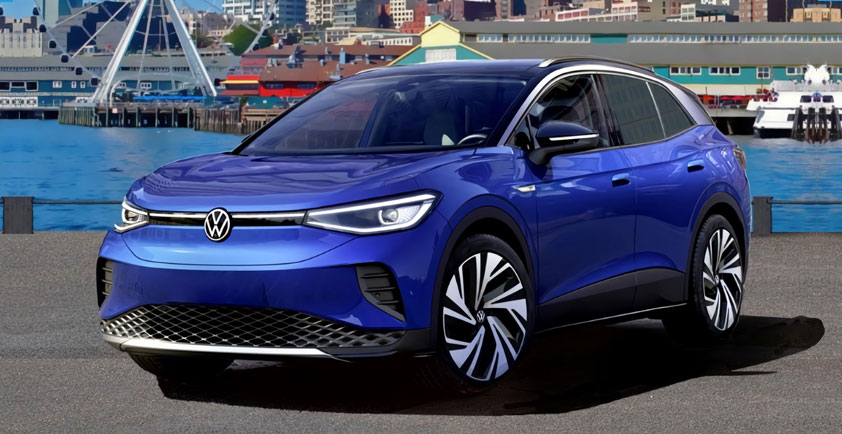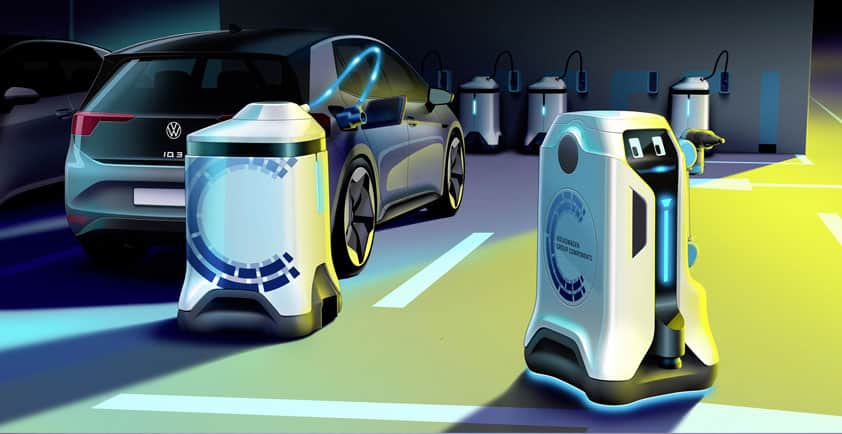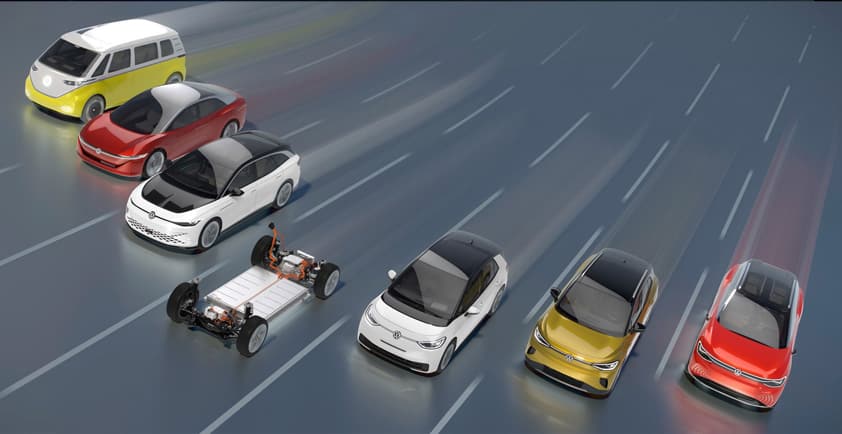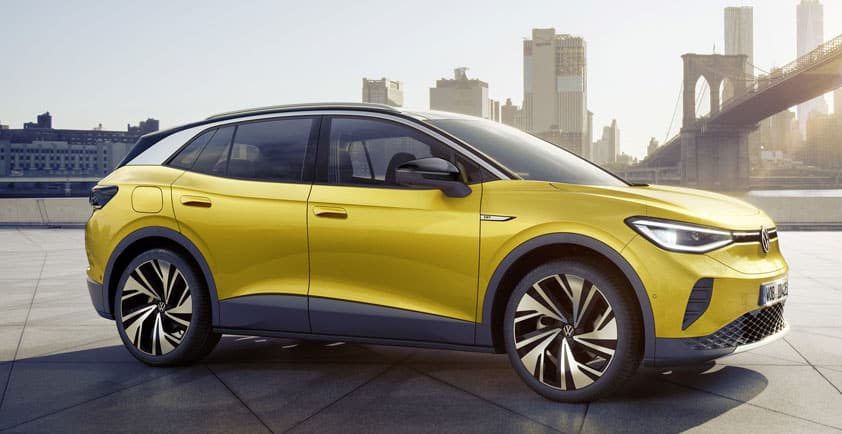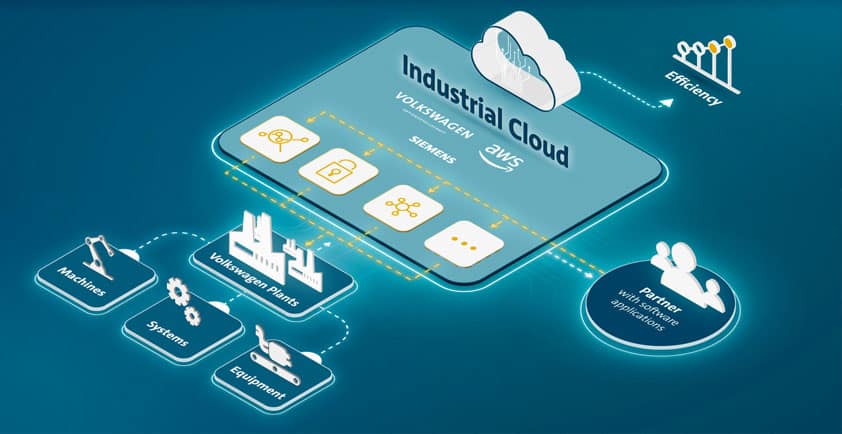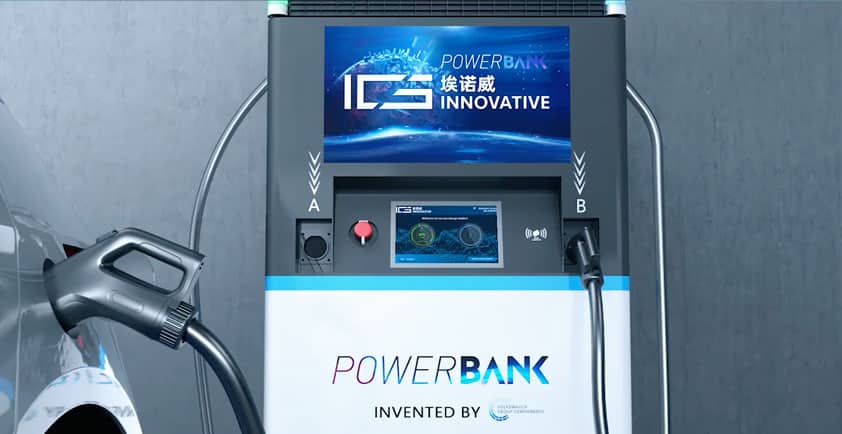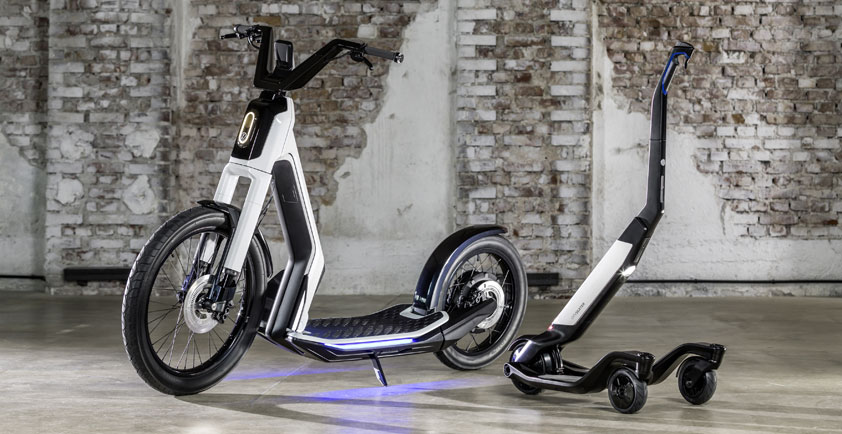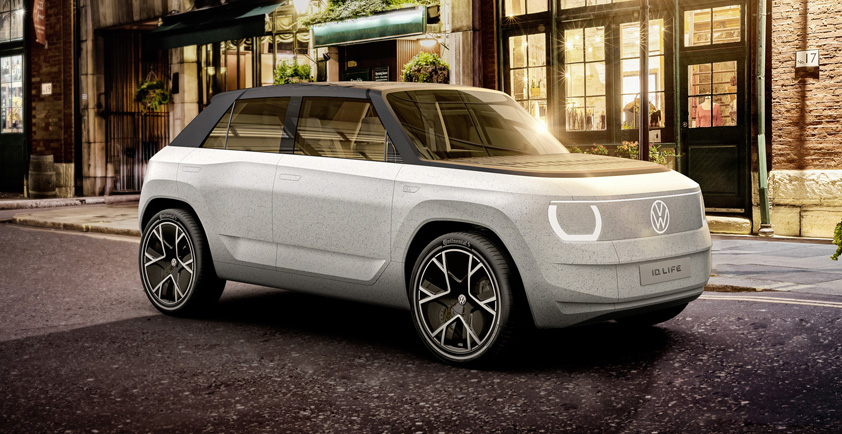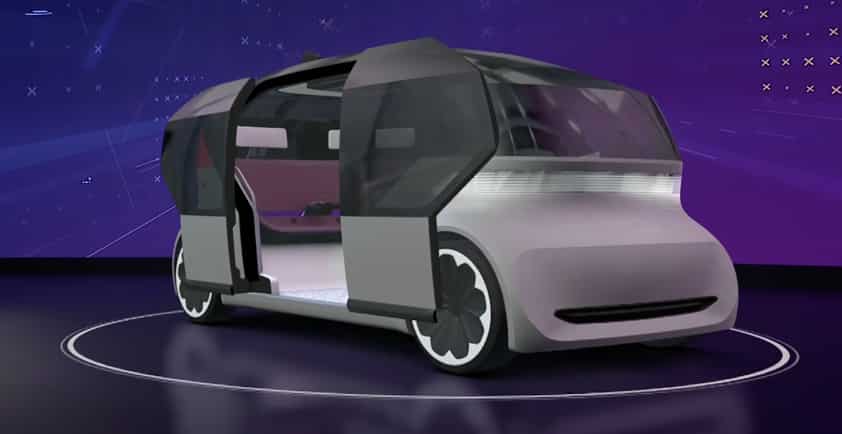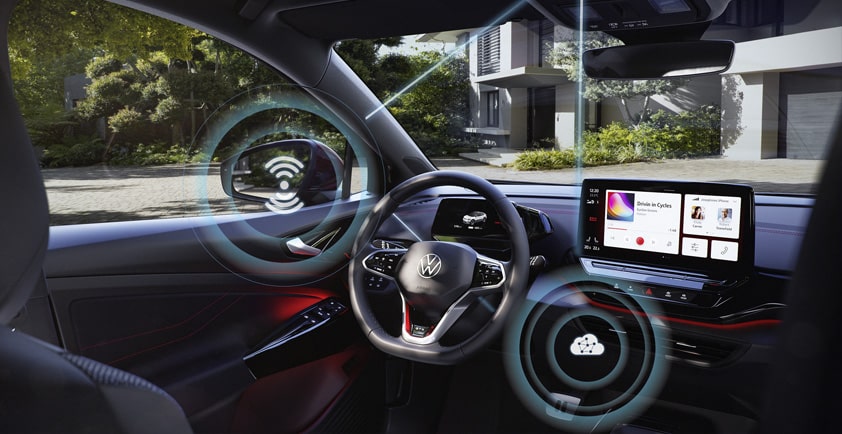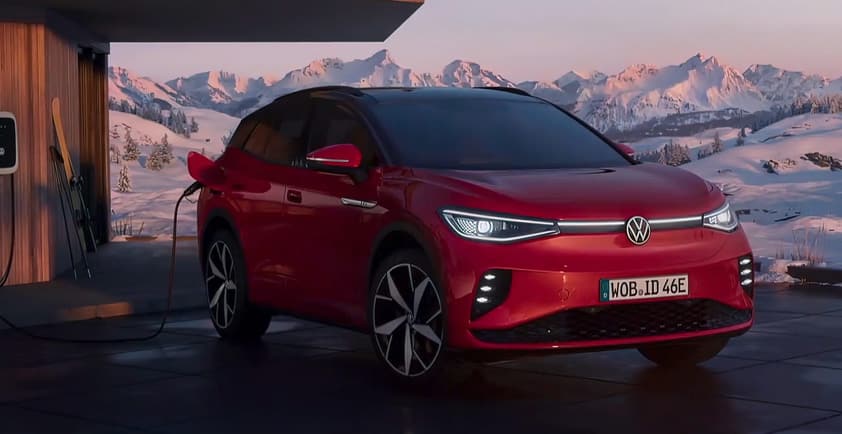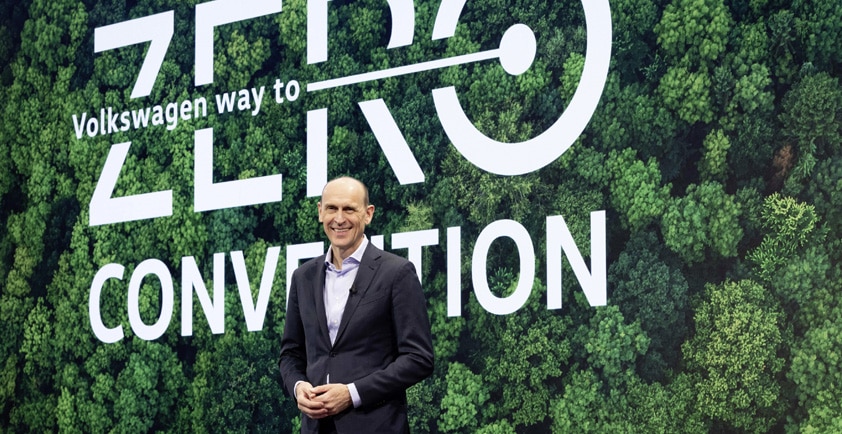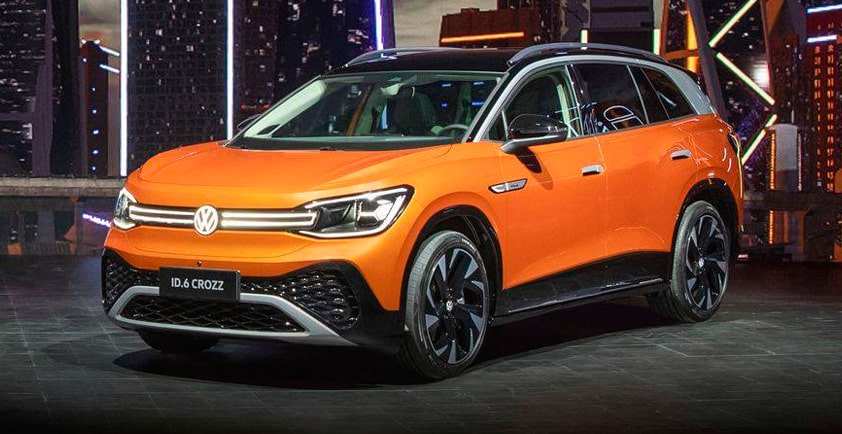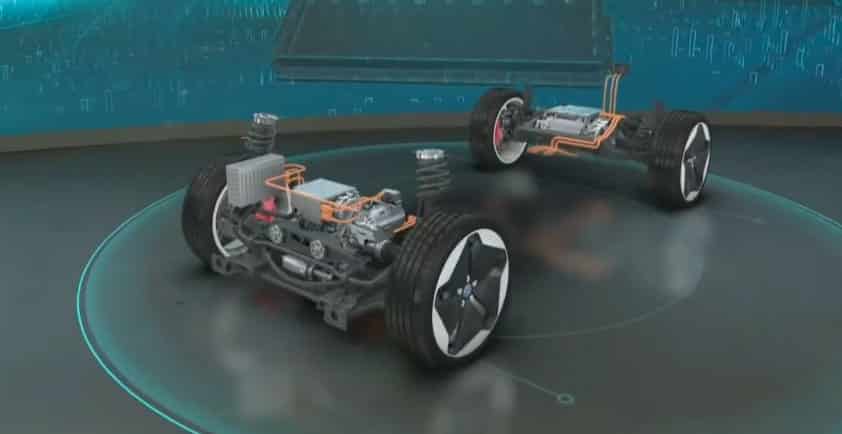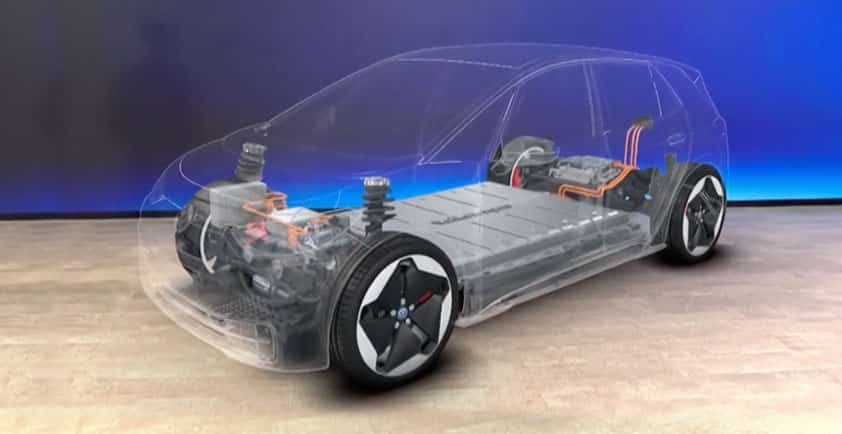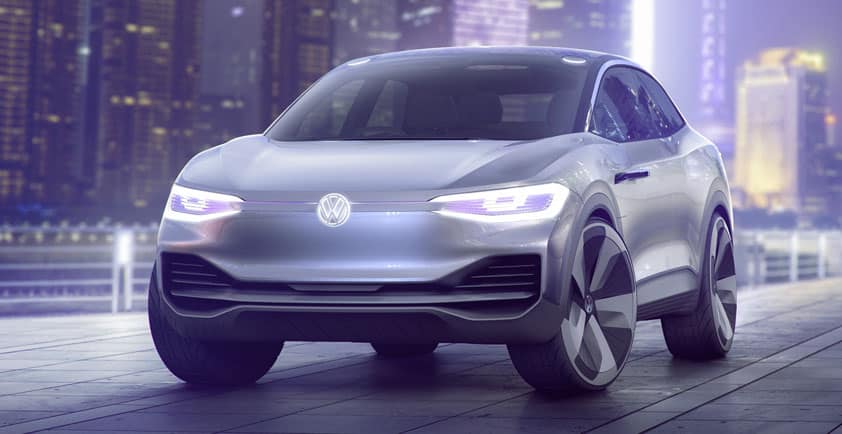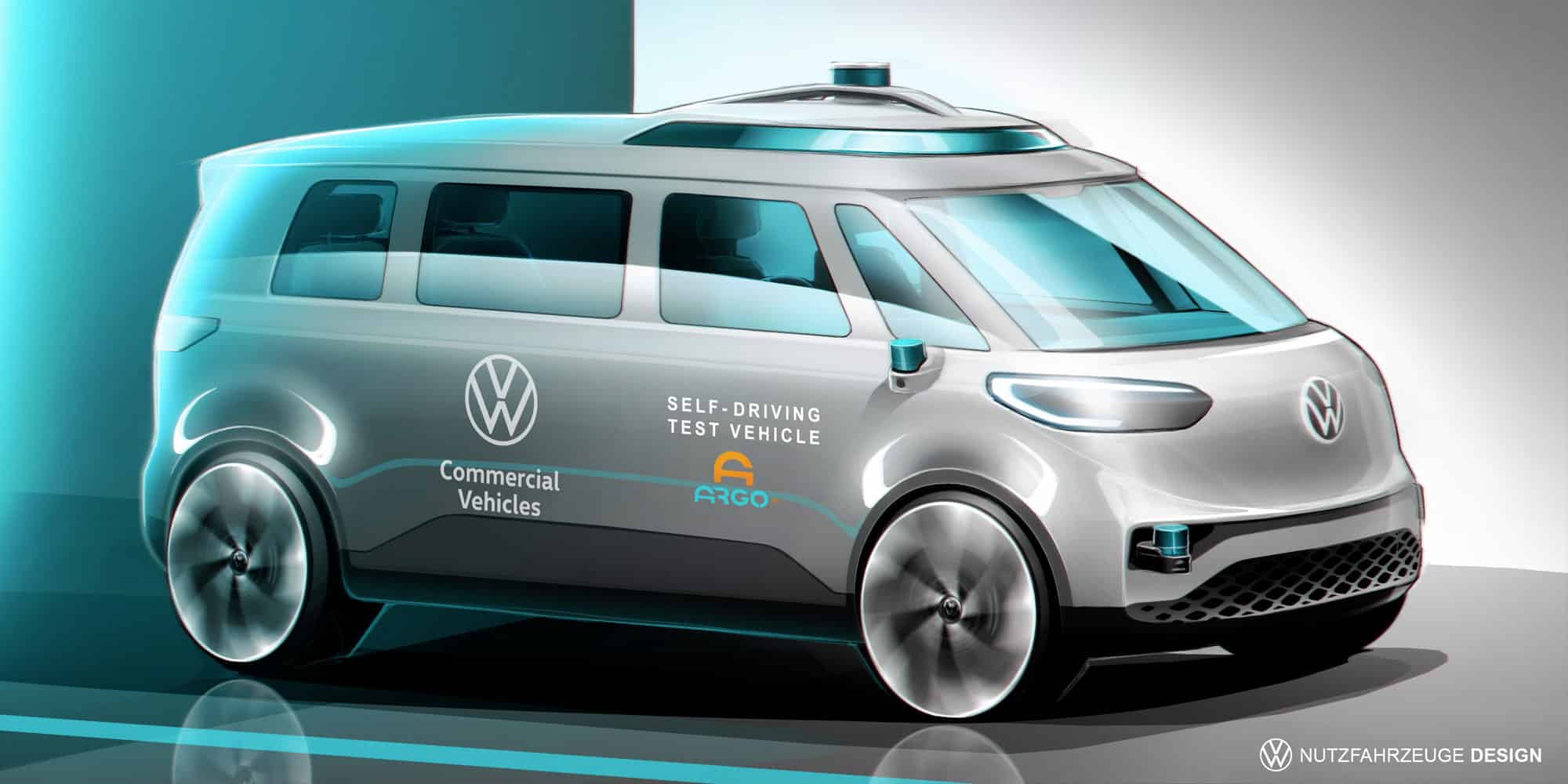
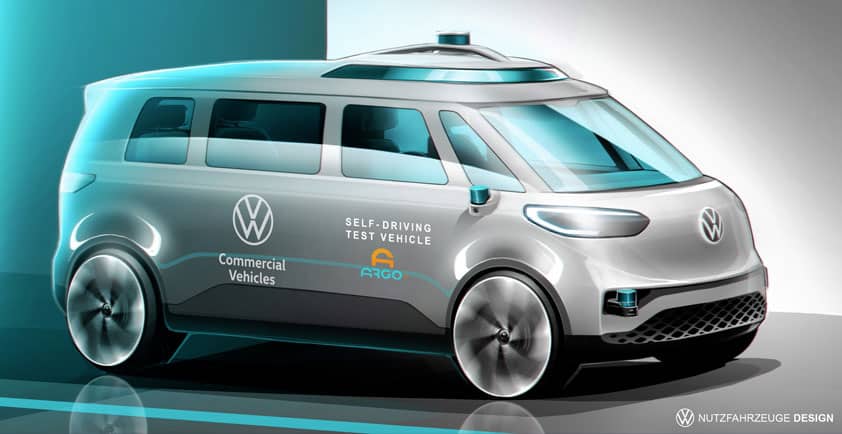
VOLKSWAGEN COMMERCIAL VEHICLES MOVES AHEAD WITH AUTONOMOUS DRIVING R&D FOR MOBILITY AS A SERVICE
>> All-electric ID. BUZZ shall be the first vehicle in the Volkswagen Group to also drive autonomously
>> CEO Carsten Intra: "Important contribution to future mobility and road safety in cities"
Volkswagen Commercial Vehicles (VWCV) is consistently and rapidly advancing the development and implementation of autonomous driving. “With the confirmation of the group’s supervisory board for our Autonomous Driving R&D program, we are setting the course for the future of mobility. Autonomous, electric driving will make an important contribution to urban mobility and road safety. Our vehicles are the logical first choice to apply such systems to", explains Carsten Intra, CEO of Volkswagen Commercial Vehicles, after today's Supervisory Board meeting of the Volkswagen Group.
The introduction of auto-nomous systems for traffic use in 2025 is currently being prepared at Volkswagen Commercial Vehicles. Christian Senger, Head of Autonomous Driving: "This year, for the first time, we are conducting field trials in Germany, in which the self-driving system by Argo AI will be used in a version of the future ID. BUZZ by Volkswagen Commercial Vehicles. The aim is to develop a ride-hailing and pooling concept similar to what MOIA offers today. In the middle of this decade, our customers will then have the opportunity to be taken to their destination in selected cities with autonomous vehicles."
As part of their cooperation, Ford Motor Company and Volkswagen Commercial Vehicles have invested equally in Argo AI, a company specialized in software platforms for Autonomous Driving. The goal: the consistent and fast development and use of autonomous systems. In addition to the initial investment of one billion US-Dollars, Volkswagen also brought its subsidiary AID (Autonomous Intelligent Driving) into Argo AI. With the budget for the autonomous driving budget now confirmed by the Supervisory Board, VWCV is taking the next significant step towards the future of autonomous mobility.
The commercial vehicle brand is responsible for the development of fully autonomous systems and their commercial use in urban areas. VWCV will develop and build Special Purpose Vehicles (SPV), such as robo-taxis and vans.
Additionally to the investments in Argo AI, the Group is also investing billions in projects of the Car.Software Organisation that develops, in parallel and independently of Argo AI, assisted and automated driving functions up to level 4 for the private mobility sector of all Volkswagen Group brands.
Volkswagen Commercial Vehicles develops the vehicles in which Argo's self-driving system (SDS) will be used. They are based on the all-electric ID. BUZZ, which will have its world premiere next year. The developments are already running at full speed, to not only electrify the iconic Bulli, but to also transform it into a groundbreaking autonomous vehicle with SDS.
About the Volkswagen Commercial Vehicles brand:
‘We transport success’. As a stand-alone brand within the Volkswagen Group, Volkswagen Commercial Vehicles (VWCV) is responsible for the development, construction and sales of light commercial vehicles. They include the Transporter, Caddy and Amarok ranges, which are produced in Hannover (D), Poznań (PL), Września (PL) and Pacheco (ARG). Our vehicles transport construction workers, families and adventurers, bread rolls, parcels and surfboards. Every day they help countless people all over the world to do a good job, they operate as mobile workshops and they bring paramedics and the police to wherever they are needed. Within the Volkswagen Group, Volkswagen Commercial Vehicles is also the lead brand for Autonomous Driving, Mobility as a Service (MaaS) and Transport as a Service (TaaS), and in future will therefore be developing and producing corresponding Special Purpose Vehicles (SPV), such as robo-taxis and robo-vans. In this way we are transporting an entire society, with all its requirements for clean, intelligent and sustainable mobility. Working at the company’s sites around the globe are more than 24,000 employees, including around 15,000 at the Hannover site.
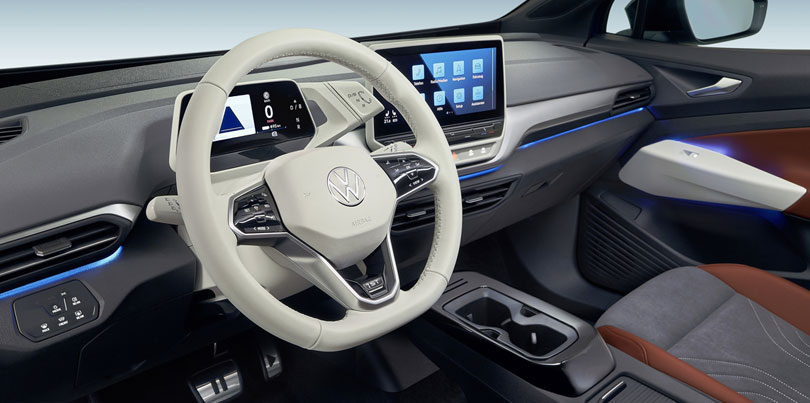
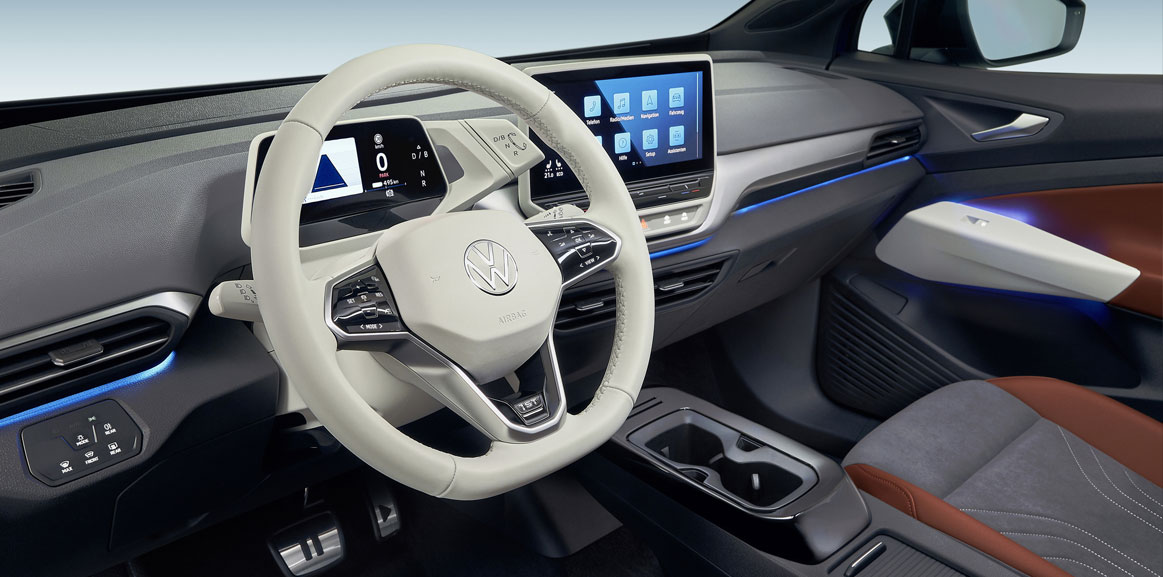
VOLKSWAGEN STRIVES FOR DIGITAL LEADERSHIP – THE ID. FAMILY WILL BE LAUNCHED WITH REGULAR “OVER-THE-AIR“ UPDATES IN 2021
>> ID.3 and ID.4 can now be profoundly updated online in Europe with the latest software
>> First "Over-the-Air" updates will be available to ID. customers before the end of summer 2021
>> New agile project unit ID.Digital coordinates preparation and playout of updates
Volkswagen ID.3 and ID.4 models in Europe can now receive new functions and in-depth technical updates via W-LAN or mobile network.The customer's vehicle always remains at the cutting edge of digital developments with the so-called "Over-the-Air" updates. The software version ID.2.1, which establishes the technical prerequisites for "Over-the-Air" updates, is automatically included with all new ID. models produced since calendar week 8.
"Volkswagen is driving forward the digitalization of its products at pace and is transforming itself into a full-service provider of hardware, software and services. The introduction of Over-the-Air updates is the next important step in our transformation into a tech company and in the development of new business models," says Ralf Brandstätter, CEO of the Volkswagen brand.
Starting this summer, Volkswagen will provide owners of ID. Vehicles with an update every three months. In addition to optimizing software performance, these may also include new functions and customization options.
"This will ensure that all delivered ID. Models will be kept at the same software level as new cars throughout their entire life cycle. Over-the-Air updates will also be the new normal in cars in the future. With them, we will keep all delivered ID. models on the same software level as new cars for years to come," says Thomas Ulbrich, Board Member for Technical Development at Volkswagen.
The newly founded ID.Digital project unit will consistently drive the further development of the ID.family and coordinate the implementation of “Over-the-Air” updates in the ID.family. The project team's agile approach will set new standards in software maintenance with short update cycles and flexible consideration of customer requirements. In this way, decisions about new digital services and improved customer interaction can be realized quickly and easily.
The new ID.Software 2.1 is already on board as standard for vehicles produced from calendar week 8. For customers who have already received an ID. Vehicle, the new software will now be made available successively. As announced, they will have to visit their dealer once for this purpose. With the new software, it will then be possible for the first time in the volume segment to update control units installed in the vehicle, among other things, without the customer having to go to the workshop.
The first "Over-the-Air" updates are currently being successfully tested on over 3,000 company cars so that the first customers will soon be able to benefit from the continuous performance improvements and new functions. Volkswagen is thus setting an important milestone in the further development of its own electronics architecture.
Software is increasingly becoming a competitive differentiating factor and therefore a decisive purchase reason in the automotive market of the 21st century.
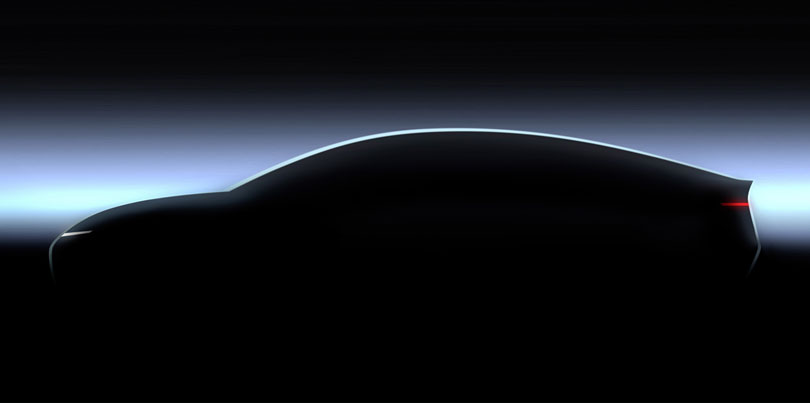
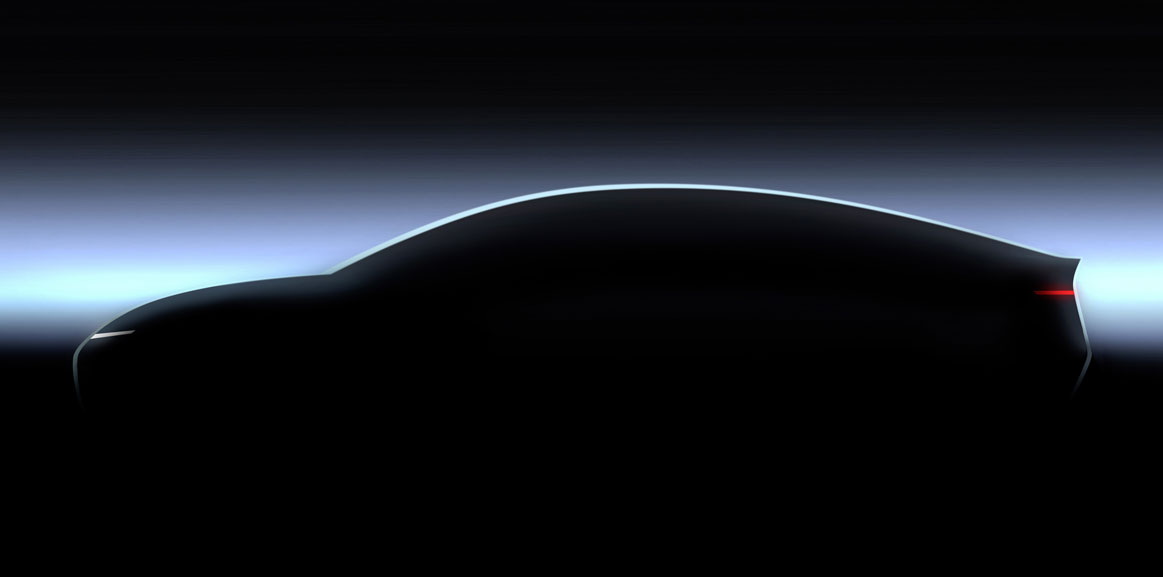
PROJECT TRINITY: WITH HIGH RANGE, EXTREMELY SHORT CHARGING TIMES AND REVOLUTIONARY PRODUCTION, THE SEDAN WILL LAUNCH IN 2026
>> Trinity becomes the focal point of the ACCELERATE strategy
>> New standards in range, charging speed and digitalization
>> Business model 2.0 is intended to generate digital revenues over the period of use
>> With the production of the series version, the Wolfsburg plant becomes a showcase for innovative, fully networked production processes
Volkswagen is giving a first design preview of Project Trinity: The electrically powered sedan is to be built in Wolfsburg from 2026 and will set new standards in terms of range, charging speed and digitization – and will be able to drive highly automated according to Level 4.
The project name Trinity is derived from the Latin “trinitas” and stands for the tri-unity. Accordingly, Trinity stands for three crucial themes: a newly developed electronics platform with state-of-the-art software, the simplification of the supply structure, and fully networked and intelligent production at the main plant in Wolfsburg.
“Trinity is a sort of crystallization point for our ACCELERATE strategy, a lighthouse project, our software dream car,” says Ralf Brandstätter, CEO of the Volkswagen brand.The newly developed vehicle architecture will set standards in terms of range, charging speed (“charging as fast as refueling”) and digitalization.
In addition, Trinity will make autonomous driving in the volume segment possible for many people. By the planned start of series production in 2026, Trinity will already reach Level 2+ and be technically ready for Level 4. “We are using our economies of scale to make autonomous driving available to many people and to build a learning neural network. In this way, we are creating the conditions for the continuous exchange of data from our vehicle fleet – for example, on the traffic situation, on obstacles or on accidents,” says Ralf Brandstätter. Trinity thus gives people time and saves them stress. After a long highway trip, you arrive at your destination relaxed. Because you have been driven by a chauffeur to your vacation or to your home after work. “Trinity therefore becomes a kind of 'time machine' for our customers,” says Ralf Brandstätter.
With the production of the series version, the Wolfsburg plant will become a showcase for state-of-the-art, intelligent and fully networked production processes. “We will completely rethink the way we build cars and introduce revolutionary approaches. Digitalization, automation and lightweight construction play an important role here,” says Ralf Brandstätter.
Future vehicle models such as Trinity will be produced with considerably fewer variants, and the hardware will be largely standardized. The cars will then have virtually everything on board and customers will be able to activate desired functions “on demand” at any time via the digital ecosystem in the car. This will significantly reduce complexity in production.
By developing the automobile into a software-based product, Volkswagen is creating the conditions for new, data-based business models. Entry barriers to individual mobility are to be lowered while at the same time offering even more attractive usage packages. Volkswagen intends to generate additional revenue in the usage phase – for charging and energy services, for software-based functions that customers can book as needed, or for automated driving. “In the future, the individual configuration of the vehicle will no longer be determined by the hardware at the time of purchase. Instead, customers will be able to add functions on demand at any time via the digital ecosystem in the car,” says Ralf Brandstätter.
